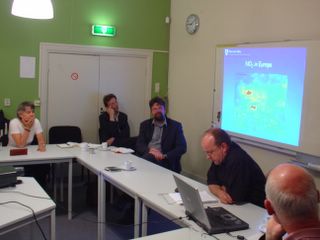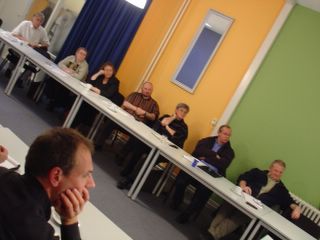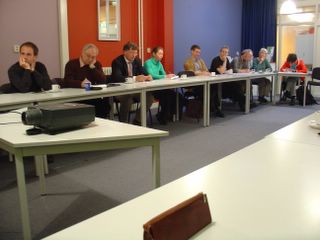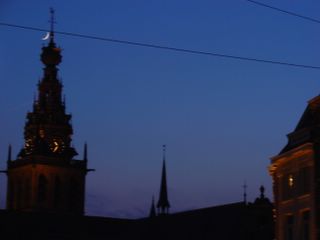Groenlinks' week, monday
The summer is definitively marking its entrance in our latitude, so accordingly people work harder and harder, in the last jump before the long summer holidays. The same for groenlinks, of course. The week that is just ended had every single day a groenlinks meeting.
The tale begins the monday, in which by first time I joined the campaign commission of Groenlinks Utrecht. Our club is responsible of creating and coordinate the campaign for the local elections of March 006. Great expectations indeed. In Utrecht GL is one of the biggest parties, currently the second. A election strategy has the challenge of capitalize our presence and at least maintain an surely increase our share of the votes. A challenge and an extremely interesting task for me. In my past years active in GL, I have been concentrated in the internal party. Now it's time to get out and learn about our voters, their desires, their ideas, and their expectations. And accordingly our meeting started talking about different ways to see our electorate. Is the GL voter a cosmopolitan? Or a postmaterialist? Shall we instead focus in labor segments, thinking that GL voters are frequent in the welfare sector? Or should we base our campaign in neighborhoods that traditionally have voted GL? Can we learn something about the use of free time? Do our voters goes to a concert or to a park?
As you can see, the discussion here involves fundamental convictions of a politician. If you are a populist, your main aim is to please your elector. In the other extreme you should lead your elector. And a whole range of alternatives rage in the middle of these options. Interestingly enough, all options start with a good knowledge of who is your supporter. So discussing how do we classify our electorate reflects our fundamental understanding of our job as politicians. Our discussion is not closed, yet. What we reviewed were different ways to classify people, as for their convictions, or they profession, their living quarters or their conception of free time. And surely I incline myself for a sort of alternative viewpoint. Surely this discussion is interesting, but ultimately it might not matter that much who votes for us. What matters much more greatly is how clearly are we going to get our standing points across. Groenlinks is the party that dares to doubt, we say. It’s difficult to have a clear-cut message. The challenge for our campaign commission, then, is rather illustrate why politicians also have to doubt, instead of knowing who is going to vote for us.




